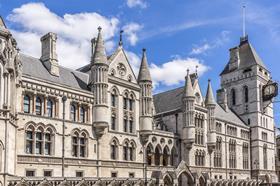A deputy district judge failed to protect their adopted children from their partner, who abused them over an extended period, a High Court judge has found.

Mrs Justice Theis said the judge, referred to as ‘Y’ in a published judgment, knew or ought to have known of their partner’s conduct - which included refusing food to the children, abusive (including racist) language, pushing soap into a child’s mouth and physical assaults - but failed to intervene or take any other action to protect the children from harm.
‘Y’ is a barrister, specialising in children cases, who also has authority to sit and hear private family cases as a judge. Their partner, ‘X’, is a primary school teacher.
Theis said: ‘Neither of them is currently undertaking these roles [...] it is recognised by both parents that the relevant regulatory bodies for each of their professions should be notified about the conclusions in this case and the judgments should be disclosed to those bodies.
‘There has already been a determination by Y’s regulatory body that Y failed to report to Y’s Leadership Judge that they had been involved in proceedings that could have affected their position or the reputation and standing of the judiciary at large, even though those proceedings were discontinued.’
Three boys – aged 17, 15 and 10 – adopted by the couple were taken into care after a finding they were routinely neglected and thereby caused significant emotional harm and were likely subject to significant physical harm.
Theis considered an application to name X and Y by press representatives Hannah Summers of the Bureau of Investigative Journalism; Dominic Casciani of the BBC; Nina Massey of PA Media and Louise Tickle, a freelance journalist. Tickle argued the risks if the parents are not named ‘is a reduction in trust and confidence in the justice system by the public, particularly in the context of the professions of both of the parents’.
But the judge declined to name the parents, stating: ‘The balancing exercise in this case is exquisitely poised and there are compelling and powerful factors on each side of the scales. There is no right answer but whilst the public interest considerations are strong in this case they are not at any welfare cost to these particular children whose interests, bearing in mind their particular vulnerability, are important.’
Theis added that a time may come after the conclusion of any regulatory process when the parents might be named.


























